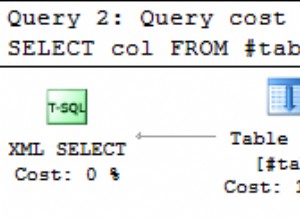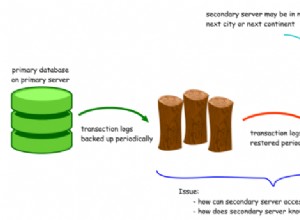Así es como lo hice.
Reutilicé un campo no utilizado en patient tabla para marcar pacientes no duplicados (N), primero de duplicados (X) y otros pacientes duplicados (Y). También puede agregar una columna para esto (y soltarla después de usarla).
Estos son los pasos que seguí para limpiar mi base de datos:
/*1: List duplicated */
select pk,pat_id, t.`pat_id_issuer`, t.`pat_name`, t.pat_custom1
from patient t
where pat_id in (
select pat_id from (
select pat_id, count(*)
from patient
group by 1
having count(*)>1
) xxx);
/*2: Delete orphan patients */
delete from patient where pk not in (select patient_fk from study);
/*3: Reset flag for duplicated (or not) patients*/
update patient t set t.`pat_custom1`='N';
/*4: Mark all duplicated */
update patient t set t.`pat_custom1`='Y'
where pat_id in (
select pat_id from (
select pat_id, count(*)
from patient
group by 1
having count(*)>1
) xxx) ;
/*5: Unmark the 1st of the duplicated*/
update patient t
join (select pk from (
select min(pk) as pk, pat_id from patient
where pat_custom1='Y'
group by pat_id
) xxx ) x
on (x.pk=t.pk)
set t.`pat_custom1`='X'
where pat_custom1='Y'
;
/*6: Verify update is correct*/
select pk, pat_id,pat_custom1
from `patient`
where pat_custom1!='N'
order by pat_id, pat_custom1;
/*7: Verify studies linked to duplicated patient */
select p.* from study s
join patient p on (p.pk=s.patient_fk)
where p.pat_custom1='Y';
/*8: Relink duplicated patients */
update study s
join patient p on (p.pk=s.patient_fk)
set patient_fk = (select pk from patient pp
where pp.pat_id=p.pat_id and pp.pat_custom1='X')
where p.pat_custom1='Y';
/*9: Delete newly orphan patients */
delete from patient where pk not in (select patient_fk from study);
/* 10: reset flag */
update patient t set t.`pat_custom1`=null;
/* 11: Commit changes */
commit;
Ciertamente hay una forma más corta, con un SQL más inteligente (¿complicado?), Pero personalmente prefiero la forma simple. Esto también me permite verificar que cada paso está haciendo lo que espero.




